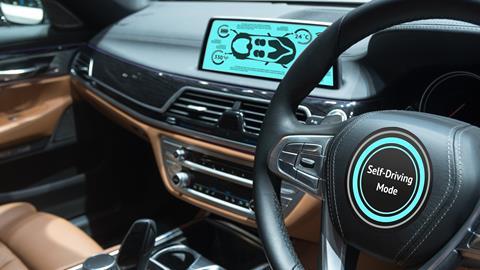The prospect of a drunk driver in Albania remotely controlling a vehicle on British public roads is among the problematic scenarios identified by the Law Commission as it seeks to start a debate on the legal status of remote driving. A paper published today, following a request from the government, asks for views on the need and options for regulating remote driving on public roads.
Technology enabling an individual to drive a vehicle from a remote location already exists - but only in controlled environments such as warehouses, farms and mines, the commission observes. The paper considers how the existing legal framework applies to remote driving on public roads. It focuses on situations where the driver does not have full line of sight and may be many miles from the vehicle, even in a different jurisdiction.
While current road traffic law has no express requirement for a driver to be within a vehicle, at least four of the Road Vehicles (Construction and Use) Regulations could pose problems. These include Regulation 107 prohibiting leaving a vehicle unless the engine is stopped and the parking brake set.
According to the commission, safety challenges include:
- Connectivity: what happens if the connection between driver and vehicle breaks down?
- Situational awareness: how can remote drivers remain aware of their surroundings without (for example) the 'feel' of acceleration?
- How can remote drivers be kept alert?
- Cybersecurity: how can unauthorised takeover of vehicles be prevented?
Remote driving also raises questions of civil liability. 'Complexities may arise if a driving automation feature is designed by one organisation and operated by another, or if the organisation that sets up the system subcontracts for remote drivers rather than employing them,' the paper notes.
The commission asks whether primary legislation may be needed to make it an offence to drive a vehicle beyond line of site unless the operation of the vehicle is overseen by a licensed organisation. Views may be submitted until 2 September.
Meanwhile, in the case of a drunk driver in Albania: 'Although the English courts would permit a criminal prosecution to be brought, there would be serious practical problems with enforcement.'




























1 Reader's comment